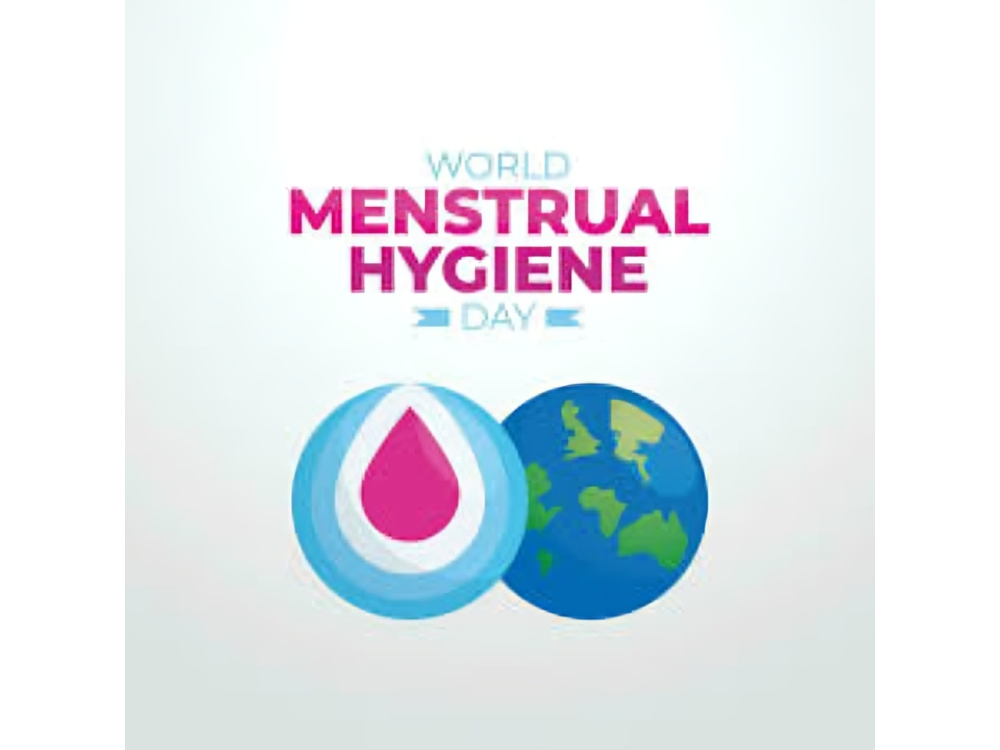Health
COVID-19: NCDC Reports 1,244 new Infections

The Nigeria Centre for Disease Control (NCDC) has reported 1,244 new cases of the Coronavirus (COVID-19), bringing the total number of infections in the country to 101,331.
The NCDC disclosed this on its official website late Monday.
The agency also confirmed additional three coronavirus-related deaths in the country in the past 24 hours.
The News Agency of Nigeria (NAN) reports that last week the country recorded more than 9,800 cases within seven days, thus surpassing its earlier weekly record of COVID-19 infections.
Available data shows that between Jan. 3 and 9, the country recorded 9,833 cases, a sharp increase from the 5,681 cases recorded in the previous week of Dec.
27, 2020, and Jan. 2, 2021.The public health agency said the new infections were reported from across 20 states and the Federal Capital Territory (FCT).
It disclosed that Lagos state, the epicentre of the virus in country, recorded the highest number of confirmed cases with 774 new infections, taking the total number of cases in the state to 36,875.
The health agency added that Lagos, FCT and Plateau recorded the highest number of COVID-19 infections with 774, 125 and 102 cases respectively.
Ohers states with new infections were Anambra-47, Ondo-46, Rivers-27, Edo-18, Kaduna-16, Ogun-16, Gombe-16, Bauchi-11, Kano-11, Nasarawa-10, Akwa Ibom-seven, Sokoto-seven, Borno-five, Ekiti-four, and Zamfara-two.
NCDC also announced the discharge of 461 patients from isolation centres across the country.
“Our discharges today include 144 community recoveries in Lagos State managed in line with guidelines,” it said, adding that it had conducted at least 1,033,858 tests since the first confirmed case of COVID-19 was announced in the country.
According to it, a multi-sectoral national Emergency Operations Centre (EOC) activated at Level 3, is coordinating response activities nationwide.
The agency issued a public health advisory to alert Nigerians that non-adherence to public health and social measures was undermining its response efforts aimed at limiting the continued spread of the virus.
“The average number of daily confirmed cases recorded in the first week of January 2021, was higher than the cumulative cases recorded the last week of December 2020.
“Following the festive season, and in view of the increase in the number of confirmed cases in Nigeria, the NCDC and partners, with leadership from the Federal Ministry of Health and the Presidential Task Force (PTF) on COVID-19 are putting in place measures to strengthen the public health agency’s response to the pandemic,” it said.
According to it, while Nigerians may be tired of the COVID-19 pandemic and its impact, the virus is taking advantage of the fatigue, complacency, gaining momentum, and taking advantage of lapses in the adherence to recommended safety protocols.
To prevent the further spread of COVID-19, the NCDC said, ”Nigerians are reminded to wear a face mask properly, wash hands with soap, and maintain physical distance from others.
“This is not the time to let down our guard. The virus that causes COVID-19 never went away and is still very much with us, as evidenced by the rising cases in Nigeria and globally.”
The NCDC noted that COVID-19 could affect all age groups with severe outcomes in the elderly (50 years and above), and in persons with co-morbidities such as hypertension, diabetes, cancer etc.
“Recently there has been increased infection among the younger age groups.
“Therefore, NCDC urges all persons to take responsibility and adhere to the non-pharmaceutical interventions (regular hand washing, maintaining physical distance, and proper use of face mask,” it explained.
It said it would continue to work with other agencies under the leadership of the Federal Ministry of Health to spear-head public health response to the disease.
It added that it would continue to play a key role in the multi-sectoral response to the disease, within the Presidential Task Force on COVID-19 (PTF-COVID-19), established by President Muhammadu Buhari.
Given the sustained increase in cases, the agency said it would also continue to work closely with state governments, provide support through the deployment of Rapid Response Teams, provide laboratory and medical supplies as well as carry out other response activities.
“We urge state governments to take greater ownership of their response, maintain their COVID-19 surveillance structures, laboratory diagnosis and testing.
“Unless states actively test, they will not know their disease burden, putting local communities at greater risk of adverse outcomes, if the virus is not detected and impacts vulnerable populations.
“NCDC has significantly scaled-up the national testing capacity by expanding the number of laboratories for COVID-19 testing across states.
“Testing remains one of the best tools we have in our fight against COVID-19, as it enables prompt clinical management and helps in preventing further transmission.
“The cumulative number of samples tested in the country has increased significantly, and some states have sustained their higher levels of testing.
“Although the country has yet to meet its total testing capacity, this remains a major priority for the response.
“Sample collection sites have also been established in many Local Government Areas, making public health testing more easily accessible.
“Testing in public laboratories remains free of charge (unless for travel purposes in private laboratories, where pricing structures vary,” it explained.
The NCDC charged healthcare professionals to maintain a high index of suspicion, especially when treating patients with breathing difficulties and also present with symptoms common to COVID-19.
It urged Nigerians to adhere to the recommended public health and social measures recommended by public health authorities and to avoid all non-essential travel within and outside Nigeria to reduce the risk of transmission.
“The virus that causes COVID-19 is more likely to spread in mass gatherings, especially in confined spaces with poor ventilation.
“It is advised that people avoid mass gatherings during this time, and if necessary meet outdoors and adhere to physical distancing and other public health measures.
“All these measures are critical in order to sustain the gains made since the onset of the pandemic.
“We also strongly advise business owners, employees and religious leaders to institute the strict enforcement and adherence to public measures, which include the wearing of face masks, ensuring the availability of handwashing facilities or providing hand sanitizers.
The NCDC said it remain grateful to all frontline health workers, state public health teams, stakeholders, and partners who have continued to work extremely hard since the beginning of the pandemic supporting the response efforts.
“We are all eager to get back to the normalcy in our lives, so the continued response and end to the outbreak starts and ends with all of us.
“We remain committed to protecting the health of all Nigerians,” it added. (NAN)
Health
Stakeholders Call for Better Menstrual Hygiene To Boost Health

Stakeholders have stressed the need for increased awareness and improved practices around menstrual hygiene, particularly to support better health outcomes and dignity for girls in underserved communities.
They made the call on Wednesday in Abuja ahead of the 2025 Menstrual Hygiene Day, commemorated globally every May 28 to address inequalities in menstrual health and hygiene.
The event was organised by Tabitha Cumi Foundation (TCF) under its Always Keeping Girls in School (AKGIS) project, with support from Charities Aid Foundation (CAF America).
Mrs Tayo Erinle, Executive Director of TCF, said menstrual hygiene remained a critical yet often overlooked aspect of reproductive health, especially among adolescent girls.
“Many girls live in households where no one provides sanitary pads or pays attention to that part of their lives.
“It happens monthly, and every girl deserves dignity and support,” she said.
Erinle added that more than 1,600 marginalised girls across 32 junior secondary schools in the FCT, Lagos, and Benue states were empowered through puberty education and menstrual hygiene management under the AKGIS project.
She said beneficiaries also received a one-year supply of Always sanitary pads and emergency kits.
“The project has boosted the girls’ confidence.
“Menstruation was once shrouded in secrecy, stigma, and confusion for many. Now, with access to correct information and education, they feel empowered,” she added.
Dr Adedolapo Fasawe, Mandate Secretary for the Health Services and Environment Secretariat, emphasised the importance of educating youths on reproductive health.
Represented by Dr Ruqayya Wamakko, Executive Secretary of the FCT Primary Health Care Board, she called for more sensitisation efforts to encourage young people to use health services in primary health centres.
“We give health talks, visit schools, form school clubs, and teach students how to care for themselves, maintain personal and menstrual hygiene, and stay safe,” she noted.
Mrs Nwakonye Onyirechi, Assistant Chief Investigative Officer in the Women and Children Department of the National Human Rights Commission (NHRC), reiterated the commission’s commitment to protecting the rights of the girl child.
“We go to schools to sensitise girls to their rights and encourage them to speak up when their rights are violated,” she said.
Dr Safiya Tamanuwa, Deputy Director of the Placement and Gender Unit at the Universal Basic Education Commission (UBEC), commended TCF for its support toward improving the health and well-being of schoolgirls.
Highlights of the event included the distribution of sanitary pads and kits, a literary presentation, and expert-led health talks.(NAN)
Health
Group urges Nigerians to embrace healthy habits to prevent diseases

The Society of Lifestyle Medicine of Nigeria (SOLONg) has advised Nigerians to embrace healthy preventive lifestyle habits to prevent the root causes of chronic and lifestyle-related diseases.
The President of SOLONg, Dr Moyosore Makinde, gave the advice in an interview in commemoration of the “Global Lifestyle Medicine Week” on Tuesday in Lagos.
NAN reports that the Global Lifestyle Medicine Week, taking place from May 18 to May 24, 2025, has the theme “Celebrating Healthy Habits: Inspire Change with D.
R.E.A.M.S.”Makinde, also an International Board-certified Lifestyle Medicine Physician, said the week was dedicated to raising awareness about the transformative power of lifestyle medicine in improving health outcomes and reducing the burden of chronic diseases worldwide.
According to her, lifestyle medicine empowers people to live healthier, happier and longer lives.
She explained that the D.R.E.A.M.S. acronym highlighted the six key pillars of lifestyle medicine that guide individuals toward healthier lives namely: Predominantly plant-based Diets, positive Relationships or social connections, Exercise, Avoidance of toxic substances, Mental wellness and stress management, and restorative Sleep.
She said that these pillars had been proven by scientific research to not only manage and prevent chronic diseases like coronary heart disease, diabetes, dementia and Alzheimer’s but also to promote a more sustainable and harmonious relationship with ourselves and with our planet.
Makinde added that it contributed to planetary health and the stability of our ecosystem.
“SOLONg is proud to announce its participation in Global Lifestyle Medicine Week, taking place from May 18 to May 24, 2025.
“Scientific studies, including numerous randomised clinical trials and longitudinal studies, have consistently shown the remarkable benefits of lifestyle interventions in reducing the incidence of chronic conditions.
“Additionally, these healthy habits play a pivotal role in strengthening resilience against infectious diseases.
“The ongoing impact of several pandemics has underscored the importance of adopting healthy behaviours, as poor lifestyle choices have been associated with worse disease severity and slower recovery times,” she said.
Contributing, the General Secretary of SOLONg, Dr Chika Anozie, said that Global Lifestyle Medicine Week aimed to foster a community of like-minded individuals and healthcare professionals committed to lifestyle medicine.
Anozie, also a Family Physician, said that SOLONg would organise various activities to mark the week, including a Webinars and educational workshops on lifestyle medicine topics.
She added that there would be courtesy visits and community outreach programmes promoting healthy habits, as well as social media campaigns sharing lifestyle medicine tips and resources.
“As we observe Global Lifestyle Medicine Week, it is clear that the need for Lifestyle Medicine is greater than ever.
“This is a clarion call for the government to create policies that promote healthy lifestyle practices while restricting behaviours that contribute to disease.
“We urge medical institutions to prioritise the accreditation of Lifestyle Medicine programs at both undergraduate and postgraduate levels.
“It is equally important that health professionals receive the proper training to effectively communicate these life-saving messages to the public.
“The Society encourages individuals to embrace the principles of healthy living, which are not only lifechanging but also long-lasting,” she said.(NAN)
Health
NAFDAC Clarifies Sachet Alcohol Ban Timeline

The National Agency for Food and Drug Administration and Control (NAFDAC) has clarified its stance regarding the nationwide ban on sachet alcohol.
Mr Kenneth Azikiwe, Director of the FCT Directorate of the agency, in an interview on Monday in Abuja that the temporary lifting of the ban was only valid until Dec.
31, 2025.He emphasised that the recent ministerial lifting of the ban was not permanent and urged the public to disregard misinformation suggesting that the government had permanently lifted the restriction.
“There is a ministerial lifting on the ban of sachet alcohol, but it is only temporary and will be reviewed by Dec. 31, 2025.
“After this date, the full enforcement of the ban will commence.
“The minister granted this temporary relief to allow manufacturers and regulators time to collaborate and ensure a more structured and effective implementation of the ban,” Azikiwe stated.”
He highlighted NAFDAC’s ongoing efforts to sensitise the public across the country, noting that awareness campaigns had reached every state.
“We have sensitised distributors, and we’ve emphasised that alcohol should not be sold to individuals under the age of 18, which is also clearly indicated on product labels,” he added.
Azikiwe also commended the Distillers and Beverages Association of Nigeria (DIBAN) for supporting the awareness drive.
He reassured the public that NAFDAC remained fully committed to regulating alcohol consumption and reiterated that sachet alcohol products containing less than 200 milliliters would be phased out after Dec. 2025.(NAN)




























